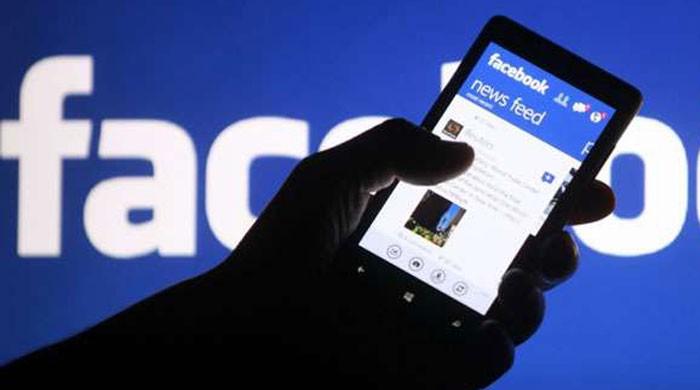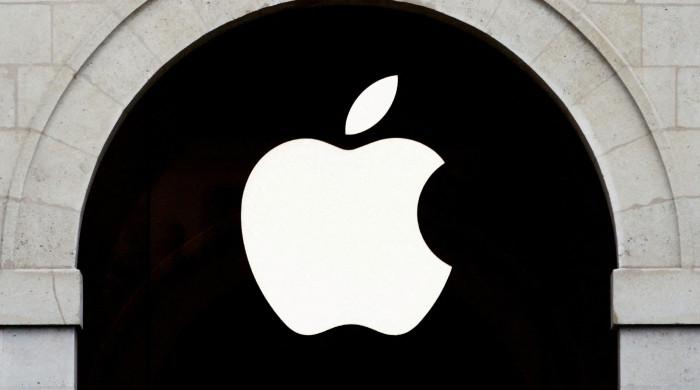World concerned over fake stories on social media
LAHORE: Just days after American President-elect Donald Trump had openly attacked CNN for airing what he dubbed was a ‘fake news’ on an unverified intelligence dossier on his Russia...
January 17, 2017

LAHORE: Just days after American President-elect Donald Trump had openly attacked CNN for airing what he dubbed was a ‘fake news’ on an unverified intelligence dossier on his Russia links, the British Minister of State for Digital and Culture Policy, Matt Hancock, asked the bosses of country’s newspaper industry to join him in discussions about the issue of attaching paramount importance to accuracy while filing and publishing reports.
It is imperative to note that British newspapers are currently fighting government proposals that would force them to pay legal costs in libel cases even if they emerge triumphant in courts! However, the condition of paying legal costs even in successfully-contested libel cases applies to newspapers who are not signatories to the state-backed regulations.
It must be noted here that apart from the “Guardian” and the “Financial Times,” which claim of having their own self-regulation mechanisms, a major chunk of UK’s print media outlets have instead signed up to a system of ‘self-regulation’ under the Independent Press Standards Organisation, which had become operational in September 2014.
In one of its recent editions, “The Guardian” states: “Ministers have summoned media bosses for talks on “accuracy” in journalism amid growing concern over the rise of fake news. Earlier this week, the US president-elect, Donald Trump, attacked CNN as “fake news” for reporting on an unverified intelligence dossier about his links to Russia. ‘BuzzFeed’ published it in full while acknowledging that it could not vouch for its veracity. Facebook also announced a project to build stronger ties with news organisations following allegations that it was responsible for propagating falsehoods during the US election.”
The newspaper further reports: “The UK government’s decision to hold talks on the issue follows Hancock’s statement to the House of Commons last November that ministers were “considering the implications of the dissemination of fake news on social media sites.” The News Media Association has previously warned ministers that Google and Facebook were unfairly making money out of journalism produced by its members.”
“The Guardian” has quoted Lynne Anderson, the News Media Association’s deputy chief executive, as saying: “There is now an urgent need to look at the value chain of digital news, and the industry is ready to play a full part in working towards finding a solution which sees the content creators fairly rewarded for their investment in news production. The recent debate around fake news has again highlighted the vital importance of the quality journalism produced by news media publishers which underpins democracy by holding power to account.”
The prestigious British newspaper adds: “Ashley Highfield, chief executive of the NMA, met Hancock late last year to discuss threats to newsgathering organisations from online platforms which earn considerable advertising revenues from displaying journalism produced by the traditional news media. Hancock told parliament: “There is a huge challenge in maintaining high-quality journalism when advertising revenues increasingly go to the platform, but the costs fall on the content provider or newspaper.”
Research on the barrage of criticism haunting social networking websites in recent past Research conducted by the “Jang Group and Geo Television Network” reveals that while criticism against the relatively well-regulated news channels and newspapers all over the world, including Pakistan, has continued unabated for many decades, it is actually the outlandish social media -- especially popular websites such as Facebook and Twitter — that are now being slated by people globally because of the massive grey area surrounding the ownership of content posted on these sites.
All social networking services — often labelled as “Gutter Press” by more infuriated and harsh critics -- claim they have an intricate set of terms and conditions, but when it comes to ownership of content, it is often a grey area.
While this might not be such a significant concern among personal users, it can be problematic for public figures and celebrities both.
Similarly, unregulated content posted on these websites can be embarrassing for businesses, which use social media marketing as a way to advertise their products and services.
As the virtual world becomes ever more ubiquitous, a lot of people are spending even more time using social media than they do actually interacting with people in the real world, citing loneliness and general mistrust as they key reasons.
There is no doubt that while many governments and local authorities around the planet rely on Facebook and other social networks like Twitter and Google etc to investigate crimes and obtain evidence to help establish a crime, provide location information, establish motives, prove and disprove alibis, and reveal communications, these websites have been accused of serving as public platforms used to incite terrorism, rape, child pornography and violence.
Due to paucity of space, let us take the case of Facebook only, when it comes to its failure in checking or curbing the spread of fabricated news stories:
Quite recently, Facebook was vehemently criticized for not doing enough to limit the spread of fake news stories on their site, especially after the 2016 American Presidential polls, where some writers had claimed Donald Trump would not have won if Facebook had not helped spread what they claim to have been fake stories that were biased in his favour.
This is what the National Public Radio (NPR), an American privately and publicly funded non-profit membership media organization that serves as a national syndicator to a network of 900 public radio stations in the United States, had reported on November 17, 2016: “NPR got the official version of how the company censors and leaves up content this summer when Facebook's head of policy, Monika Bickert, agreed to a phone interview. We spoke with 10 current and former employees’ total, on the record and on background, for this investigation. It's hard to remember this sometimes, but Facebook has never claimed to be a free-speech platform. The company is trying to create a safe space where, unlike on Twitter, people can share without being trolled or shamed. Bickert is in charge of setting the content policies. She explained that when a user reports a piece of content that might be offensive, the company exercises its power to censor with precision. However, three of Bickert's former colleagues tell a very different story of how Facebook deals with controversial content. They and others declined to be named for fear of job repercussions (at Facebook or at their current employers, also Internet companies), but their descriptions are consistent with each other.”
The NPR had continued saying: “When a user flags a post on Facebook — whether it's a picture, video or text post — it goes to a little-known division called the "community operations team." In 2010, the sources say, the team had a couple hundred workers in five countries. Facebook found it needed more hands on deck. After trying crowd sourcing solutions like CrowdFlower, the company turned to the consulting firm Accenture to put together a dedicated team of subcontractors. Sources say the team is now several thousand people, with some of the largest offices in Manila, the Philippines, and Warsaw, Poland.”
Facebook security issues
On July 28, 2010, the BBC had reported that renowned British Security Consultant Ron Bowes had used a piece of code to scan Facebook profiles to collect data of 100 million profiles. The data collected was not hidden by the user's privacy settings.
The security consultant then published the list online. This list, which has been shared as a downloadable file, contains the URL of every searchable Facebook user's profile, their name and unique ID. Bowes said he published the data to highlight privacy issues, but Facebook claimed it was already public information.
The BBC had said: “On the ‘Pirate Bay,’ the world's biggest file-sharing website, the list was being distributed and downloaded by more than 1,000 users. In a statement to BBC News, Facebook said that the information in the list was already freely available online.”
Here follows the Facebook version, as quoted by the BBC:
“People who use Facebook own their information and have the right to share only what they want, with whom they want, and when they want. No private data is available or has been compromised. In this case, information that people had agreed to make public was collected by a single researcher and already exists in Google, Bing, other search engines, as well as on Facebook.”
(Reference: The July 28, 2010 edition of the BBC)
A lawsuit that claimed Twitter, Facebook and Google were liable for fanning terrorism
On June 18, 2016, an esteemed American magazine “Fortune” had reported: “The family of a victim of the Paris terrorist attacks in November of 2015 has filed suit this week against Twitter, Google, and Facebook, claiming that the platforms have “knowingly permitted the terrorist group ISIS to use their social networks as a tool for spreading extremist propaganda.” The suit describes this as “material support” for terrorism, saying that without social media, the growth of ISIS “would not have been possible. The lawsuit was filed by Reynaldo Gonzalez, whose daughter Nohemi Gonzalez was a student at California State University, Long Beach, spending a semester abroad last fall. As described in the suit, she was eating at a restaurant on the Rue de Charrone when gunmen attacked, killing her.”
The magazine had stated: “According to the new suit, ISIS controlled an estimated 70,000 Twitter accounts, “at least 79 of which were ‘official.’” Despite what appears to be open-ended legal protection, Twitter has recently accelerated efforts to quash terrorist dialogue, suspending 125,000 accounts since the middle of last year. In a statement earlier this year, Twitter said it has worked to “strike a balance” between freedom of speech and opposing terrorism. However, an array of legal experts says that the suit has little chance of moving through the courts. Section 230 of the Communications Decency Act, enacted in 1996, establishes that user-generated content on digital platforms cannot be used in proceedings against the platforms.”
--Originally published in The News











